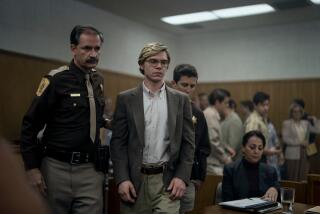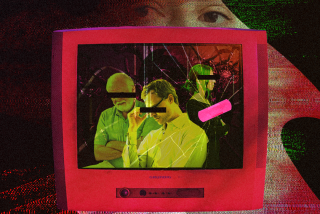Our Real Heroes Don’t Kill Black Kids
LURKING BEHIND the question of “Should Tookie die?” being pondered by Gov. Arnold Schwarzenegger are the troubling attempts by some of Stanley Tookie Williams’ supporters to present the Crips’ purported co-founder as a role model for inner-city youth.
The effort is molded after the campaign to turn Mumia Abu-Jamal, a convicted cop-killer, into a political prisoner. Abu-Jamal now sits on Pennsylvania’s death row with his case grinding its way through various levels of appeals. Two decades ago, Abu-Jamal was involved in a confrontation that resulted in the point-blank execution of Philadelphia Police Officer Daniel Faulkner. With eyewitnesses and the murder weapon on hand (Abu-Jamal’s own gun), the prosecutor called it “the strongest homicide case I ever tried.” A jury of two blacks and 10 whites took just six hours to render a guilty verdict.
The mists of political mythology (the bullet that killed the officer was a different caliber than Abu-Jamal’s gun; someone else shot Faulkner; the police framed Abu-Jamal, etc.) now obscure a case that over the years has become a prime cause for the nation’s leftist activists, including, of course, the Hollywood Left.
The list of celebrities advocating on behalf of Abu-Jamal includes Maya Angelou, Martin Sheen, Jesse Jackson, Spike Lee, Paul Newman, Tim Robbins and Oliver Stone. Hundreds of thousands of dollars have been contributed to the legal defense of Abu-Jamal — whom novelist Alice Walker bizarrely likened to Nelson Mandela.
Mythology and misguided celebrities also surround Williams, who was convicted and sentenced to death for the killing in February 1979 of Albert Owens, a clerk at a 7-Eleven store in Whittier, and for the murder one month later of Tsai-Shai Chen Yang, Yen-I Yang and Yu-Chin Yang Lin at their family-run motel in Los Angeles.
The facts are as clear as Williams’ crimes were senseless and gory. The sawed-off shotgun used in the murders belonged to Williams. Others involved in the crimes fingered him as the shooter. Several witnesses testified that he bragged about the killings in gruesome detail. The jury that convicted Williams was racially mixed, and nothing indicates that his defense team was less than excellent.
Williams’ appeals have been denied by the California Supreme Court, the U.S. 9th Circuit Court of Appeals (the most liberal appeals court in the nation) and the U.S. Supreme Court. Last week, the state Supreme Court heard a last-ditch appeal from Williams’ attorneys and again rejected it.
The strongest case for clemency is made by Williams’ activities in recent years while on death row. His supporters say that no matter what he may have done in earlier years, his later actions indicate that he has redeemed himself. This view was expressed in a slanted made-for-television movie “Redemption,” in which Jamie Foxx portrayed Williams as an innocent man.
This is an argument that his own defense team wisely avoids making in its clemency petition to the governor — choosing to base its arguments not on evidence so many have already found conclusive, but on Williams being a changed man.
I applaud Williams’ efforts, while incarcerated, to steer youngsters from the ruthless gang life. But the people who dishonestly paint folk hero portraits of men such as Abu-Jamal and Williams (and even of 50 Cent, the thug and drug dealer-turned-rapper whose chief claim to fame is surviving being shot nine times by a rival) would do far more good by hitting young people with another message: that personal responsibility and accountability must be a part of civilized society.
In 2003, when L.A. experienced a 23% drop in homicides, 39% of the city’s 505 murder victims were black and 36% of the homicide suspects were black, though only 11% of the city’s population is black. For five straight years, about 40% of L.A.’s homicide victims have been black. If the celebrities and community activists supporting Williams began lifting up real community heroes — such as teachers, police officers, members of the clergy, hardworking parents or veterans of the Iraq war — maybe we could begin to change the dynamics of neighborhoods suffering from the predatory effects of Tookie wannabes.
More to Read
Sign up for Essential California
The most important California stories and recommendations in your inbox every morning.
You may occasionally receive promotional content from the Los Angeles Times.










